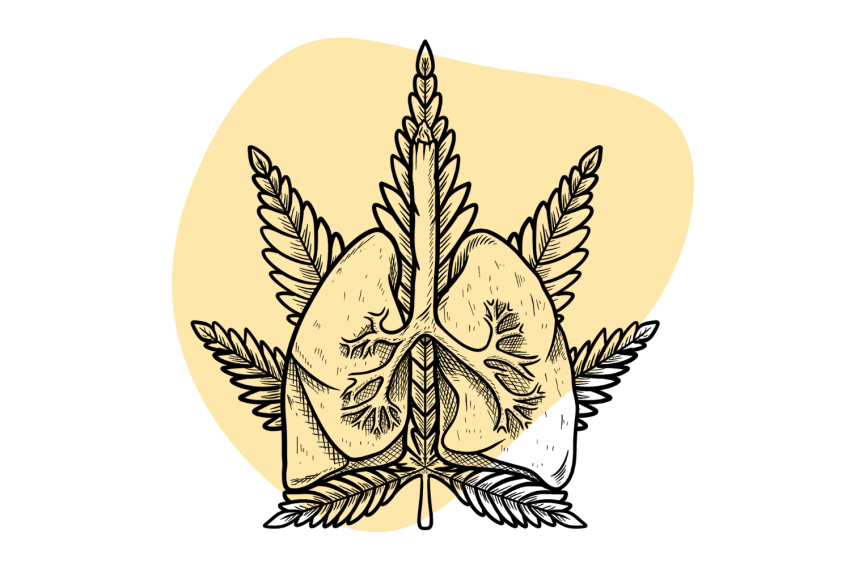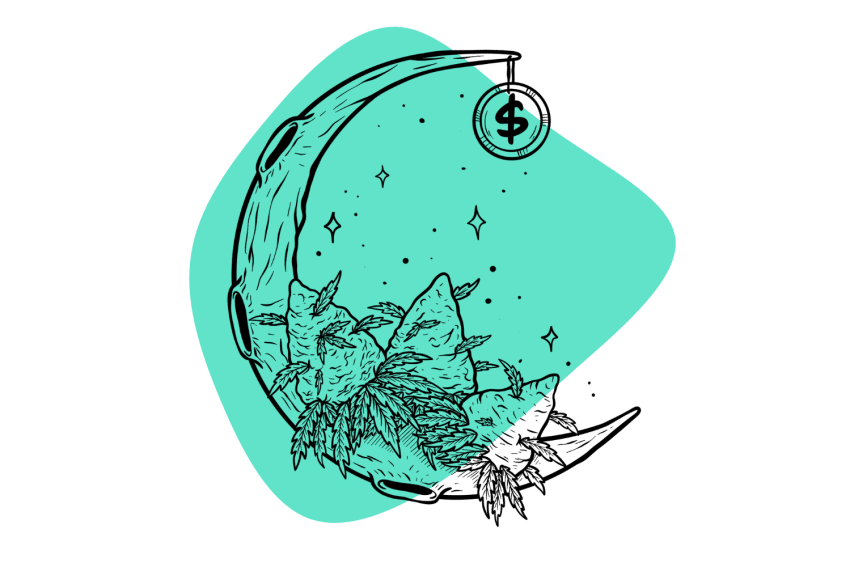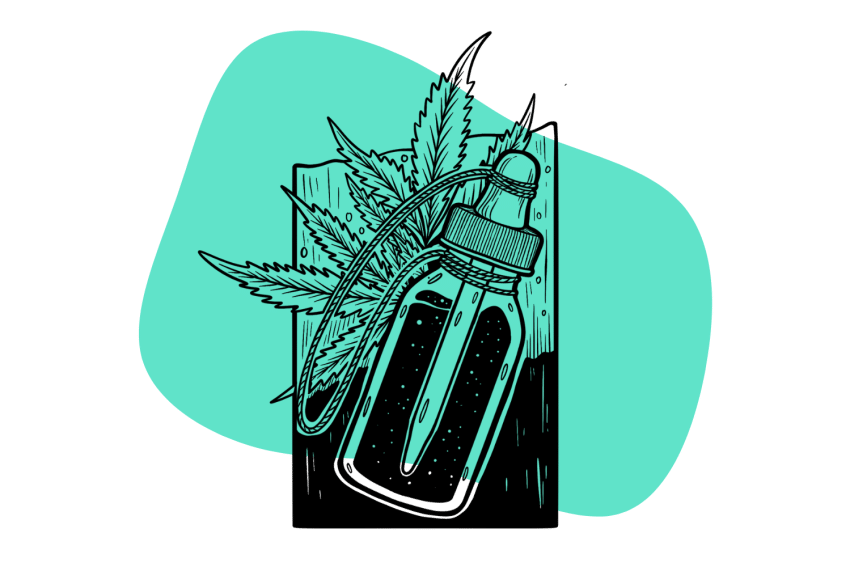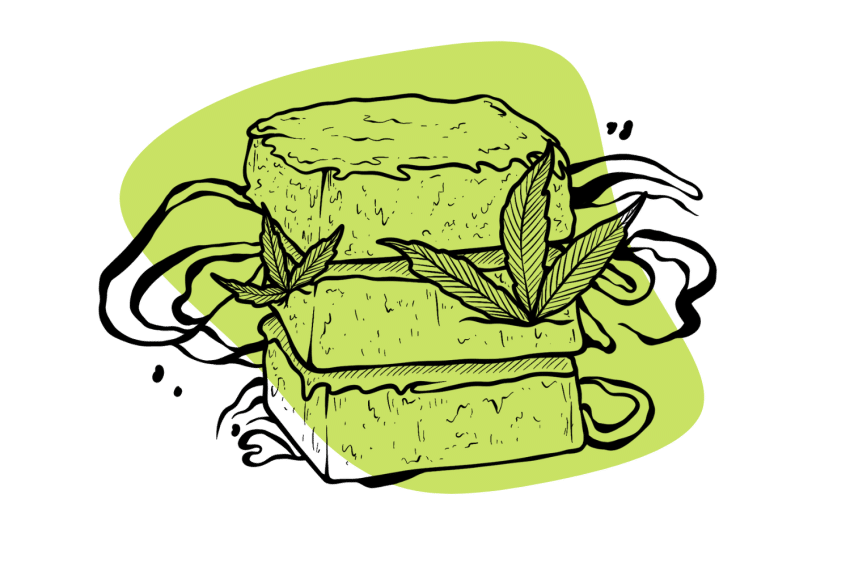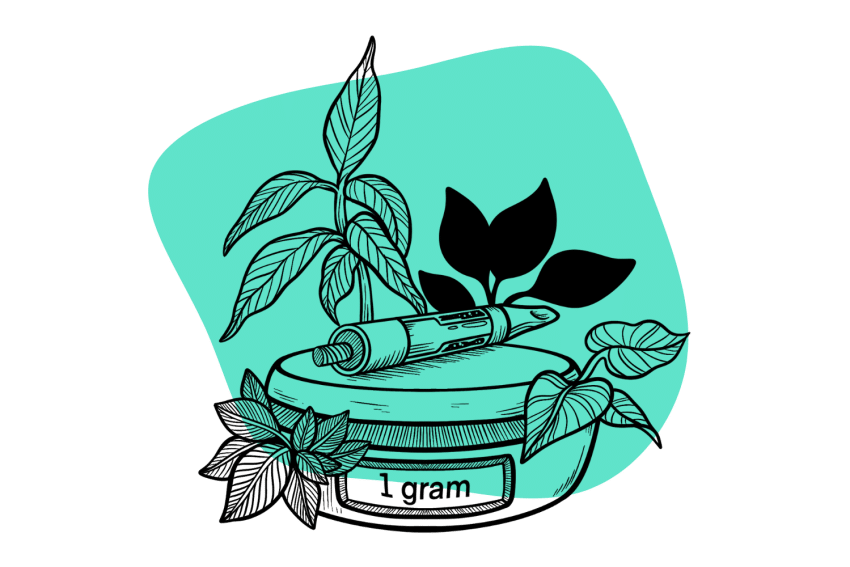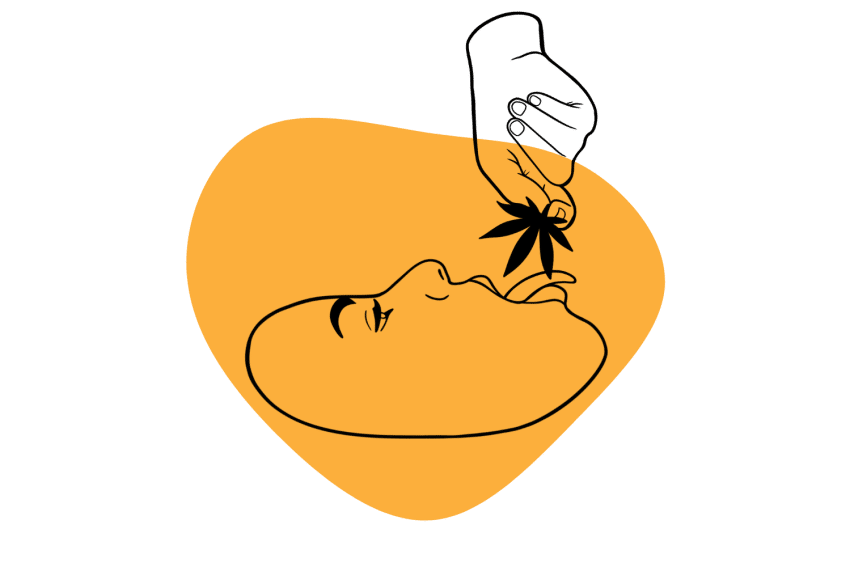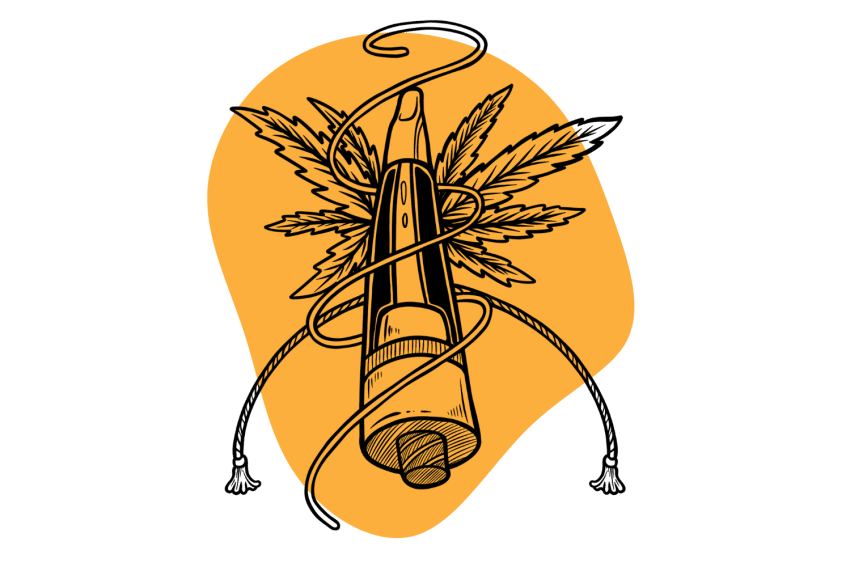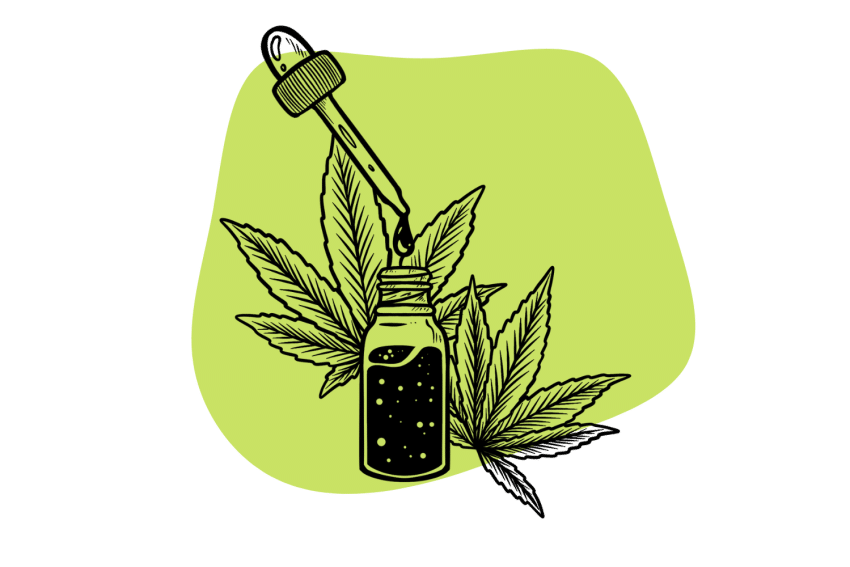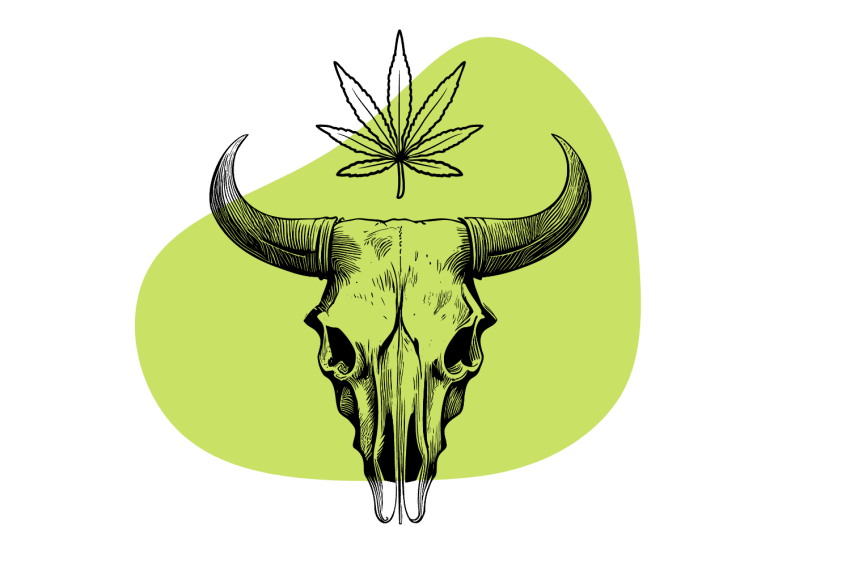Ready to Stop Smoking Weed? Here’s What to Expect
Whether you want to stop using weed or are simply curious about what could happen if you did, here’s a look at the effects you might experience.
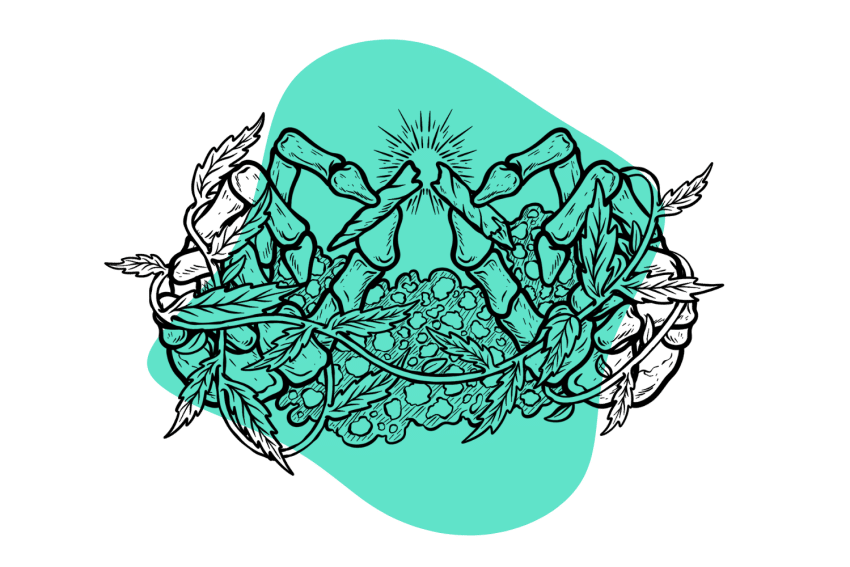
There are many reasons why you may want to stop smoking weed, from peer pressure to passing a drug test for a job or simply wanting to save money. Maybe you aren’t even planning on doing it now but are curious about what might happen if you do.
Regardless of your motive, it’s essential to keep one thing in mind: it’s not as straightforward as it seems.
The consensus is that, unlike alcohol or cocaine, you can quit weed whenever you want… but is that true?
What is Marijuana Withdrawal?
Marijuana withdrawal is a common process that less than half of dependent users go through.
Researchers claim that 30% of marijuana users can become dependent on it. While many weed enthusiasts believe they can quit anytime, its withdrawal symptoms shouldn’t be ignored [1].
Marijuana withdrawal sets in whenever you stop using THC products or lower the dosage abruptly. The withdrawal process consists of a set of physical and psychological symptoms [2].
Essentially, it’s the body’s reaction to the missing substances or chemicals it’s used to.
Common Symptoms of Marijuana Withdrawal
Marijuana withdrawal symptoms vary wildly between users. Some report only feeling slightly irritated, while others claim that the cravings were so strong they couldn’t quit cold turkey.
Here’s a quick rundown of the most common weed withdrawal symptoms:
Sleep Deprivation
There are many reasons why quitting weed can lead to insomnia, including:
- Depressed REM sleep — Studies show that weed plays a key role in suppressing REM sleep. As long as you are using weed, you’ll have fewer vivid dreams. If you suddenly stop, they might return in full force and disturb your sleep [3].
- Dependency — People who use weed to help them sleep may have their sleep schedules affected if they stop taking it. Your body might need some time to relearn how to sleep naturally.
- Brain chemistry — Long-term use can affect the brain’s balance of chemicals and alter its serotonin and dopamine production. This may affect your ability to fall and stay asleep.
Tiredness and Irritability
Marijuana contains cannabinoids such as THC (tetrahydrocannabinol), which interact with the cannabinoid receptors in our brains and bodies.
The sudden disturbance of these receptors can make you feel tired and shift your mood, causing you to feel irritable. It’s hard to tell how long this irritability will last — but be prepared to be a bit moody for a while.
Anxiety & Depression
Weed can help you manage anxiety — if you stop using it all at once, you may temporarily feel an increased sense of anxiety and stress.
Worth noting is that bouts of anger can accompany this sense of heightened stress. It’s not uncommon to have a depressed mood once the physical effects begin to fade. If you feel like these side effects are getting out of hand, get in touch with a professional as soon as you can [4].
Change in Appetite
THC can release hormones that increase your sense of taste and smell, making food more desirable and thus causing the ‘munchies.’
During withdrawal, this effect can reverse, suppressing your appetite and leading to weight loss and even nutritional imbalance.
However, things aren’t so cut and dry. Another possible effect is increased appetite and a desire for specific meals — more often than not, comfort foods. Remember that withdrawal symptoms vary wildly between users.
Cravings
Weed cravings aren’t uncommon in people who have stopped using. After five days of abstinence, the desire for more weed can become overbearing for some and lead to relapse [5].
To ease the cravings, many weed veterans recommend exercising or finding a new habit to replace marijuana. From munching on snacks to playing video games, anything can work — the important thing is to distract yourself as much as possible.
Physical Symptoms
Aside from all of these psychological effects, it’s also important to keep in mind the physical effects one might undergo during withdrawal.
The most frequent physical effects include [6]:
- Nausea — Weed withdrawal can affect the digestive system. It’s part of what causes the lack of appetite and can lead to nausea and stomach discomfort.
- Headaches — Changes in blood flow and neurotransmitter levels have led to people reporting headaches during withdrawals.
- Sweating — The body may have difficulty regulating temperature during this process, and sweating and chills may become more common, especially during sleep.
- Soreness — An overall feeling of discomfort in the limbs that may make it hard to keep still or get comfortable.
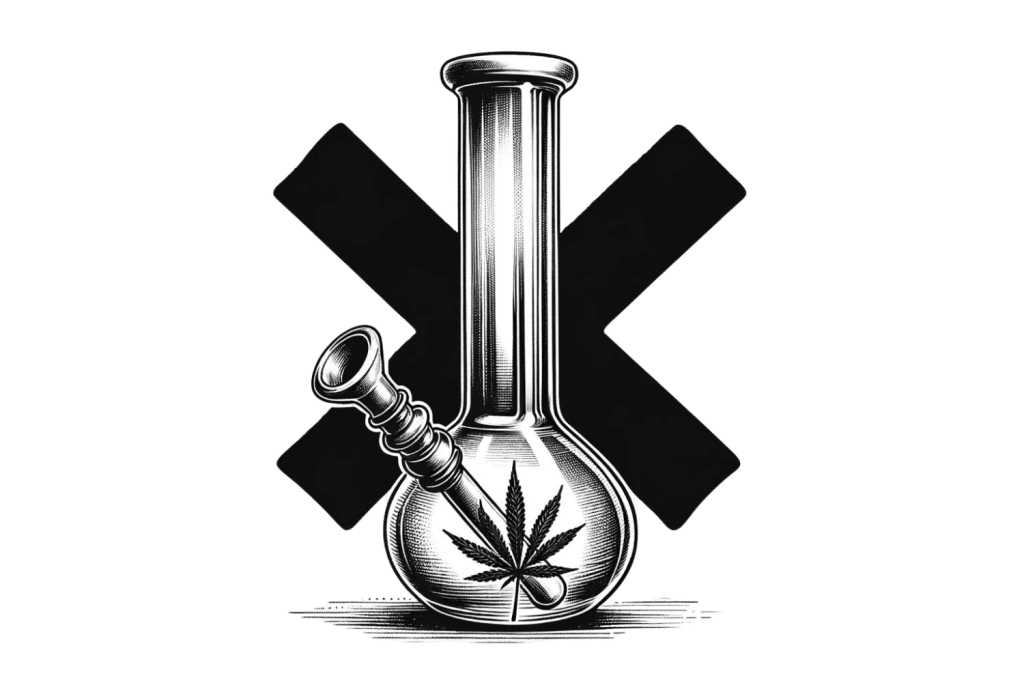
Approximate Withdrawal Time-Frame
Unfortunately, there isn’t a strict rule regarding how long marijuana withdrawal can last.
The length of the withdrawal will mostly depend on your tolerance, usual dosage, and other weed habits. Even though it widely varies, researchers were able to create a rough guideline to help you get through quitting weed.
Below is a typical time frame based on clinical studies so you get a rough idea of what to expect [2]:
Days 1 to 5
The symptoms of marijuana withdrawal begin, and their effects are at their strongest around day 3. Nausea, sweating, shakiness/tremors, and decreased appetite are common.
If you’re attempting to quit, this will be the most challenging stage to endure, as you may become restless and feel the need to get weed again.
Days 6 to 10
This is when the mental symptoms start to show up for some people. Irritability, restlessness, anxiety, and a depressed mood can become more prevalent as THC levels go down.
Days 10 to 20 & Onwards
Symptoms begin to fade, while restlessness and sleep disturbances may endure for long-term weed users. For most, this is when they’ll begin to feel more stable.
Leftover symptoms can last up to a month, and any traces left in your system can stay there for as long as three months. If you want to quit permanently, it’s important not to lower your guard just because you’re already past the critical stage.
Can I Stop Smoking Weed On My Own?
While seeking help or support is recommended, that doesn’t mean you’re entirely helpless on your own. Reducing your weed intake over time is a more successful strategy than outright quitting [6].
Quitting at once is often referred to as quitting ‘cold turkey’ — a term you’ll see a lot among people who have already stopped using a substance. While it may sound like the best way to quit, going cold turkey can lead to stronger cravings and symptoms.
Switching to low-potency strains or even THC-free products such as CBD oil can go a long way toward a healthy recovery with less risk of relapsing. This progressive approach is better suited for many people as long as they can maintain discipline.
If you use weed to help lessen some kind of pain or to help you sleep, consult with a medical professional about alternatives.
Quitting Weed One Step At a Time
One psychological aspect of weed that can affect people is feeling a lack of control or care over their lives. Things may feel too chaotic or out of their hands, making the prospect of quitting harder than it should be.
Getting a solid handle on things and a structure you can rely on might be just what you need.
The following habits can ease you into a more structured routine:
- Go to bed and get up at the same time every day
- Eat meals regularly
- Plan your activities and organize events or meet-ups
- Set time aside for stretches or exercise
The idea is to make weed one part of your day instead of your day revolving around it. It’s an excellent opportunity to try new hobbies, take on new projects, or finally get around to doing the things you never had time for before.
Talking with medical professionals, friends, and relatives may also be a good idea. They can help you track how much you’re using, offer options, and even support or encourage you when needed.
Asking for help can be hard at times, but more often than not, it’s the first step toward making a change!
Benefits of Quitting Weed
There are many benefits to quitting weed that make withdrawal worthwhile.
People who’ve quit using weed often report:
- Improved focus and mental clarity
- Better memory
- A healthier state of mind and emotional well-being
- Increased motivation and energy
As previously mentioned, it can improve your sleep and reduce stress, anxiety, and depression [7]. All of these changes lead to a healthier lifestyle.
Studies have also shown that quitting weed can have positive effects when it comes to lung health. As your airways become less swollen, coughing and wheezing will become less frequent [8].
Regaining control over your life is essential for personal growth and long-lasting gratification. It’s worth remembering that how we go about it is almost as important as the result.
Rather than stopping altogether and quitting cold turkey, reducing usage bit by bit might be better. And if you do plan to smoke weed again, then consider doing it sporadically and in moderation.
However, how you do it is up to you, so go ahead and go cold turkey if you want to be done sooner.

FAQs: Quitting Weed
You might need more information about weed, so here are answers to common questions.
1. Does smoking weed cause cancer?
There’s no clear answer to this, but the risks increase the more you smoke. Smoking marijuana is less likely to cause cancer than smoking cigarettes, and marijuana has health benefits, but we need more research in order to know anything conclusive.
Check out Can Smoking Weed Cause Cancer for an in-depth look at what we do know.
2. How severe is marijuana withdrawal?
The withdrawal duration and intensity vary depending on how long you’ve been using [2], but in general, most people get through without much issue. It’s not like alcohol or opioid withdrawal, which can be deadly.
However, addiction and withdrawal do not treat everyone the same, so reach out for help if you’re struggling.
3. What happens if I start smoking weed again?
It’s all about your mindset — though a boss might have input if you fail a drug test for work. The good news is if you’re quitting because you want to quit and fall back into the habit — either once or for an extended period — you alone get to decide how to handle it.
You might be disappointed or feel like you let others down, or maybe you chalk it up as the mistake it is. We all fall, so know you’re not alone. Face your emotions, get back on your feet, and try again. Find the support you need so you can make the improvements that are important to you.
Subscribe For More 🍄
References
- NIDA. 2021, April 13. Is marijuana addictive? Retrieved from https://nida.nih.gov/publications/research-reports/marijuana/marijuana-addictive on 2023, December 11
- Connor, J. P., Stjepanović, D., Budney, A. J., Le Foll, B., & Hall, W. D. (2022). Clinical management of cannabis withdrawal. Addiction (Abingdon, England), 117(7), 2075–2095. https://doi.org/10.1111/add.15743
- Bolla, K. I., Lesage, S. R., Gamaldo, C. E., Neubauer, D. N., Funderburk, F. R., Cadet, J. L., David, P. M., Verdejo-Garcia, A., & Benbrook, A. R. (2008). Sleep disturbance in heavy marijuana users. Sleep, 31(6), 901–908. https://doi.org/10.1093/sleep/31.6.901
- Hughes, J. R., Naud, S., Budney, A. J., Fingar, J. R., & Callas, P. W. (2016). Attempts to stop or reduce daily cannabis use: An intensive natural history study. Psychology of addictive behaviors: journal of the Society of Psychologists in Addictive Behaviors, 30(3), 389–397. https://doi.org/10.1037/adb0000155
- Haughey, H. M., Marshall, E., Schacht, J. P., Louis, A., & Hutchison, K. E. (2008). Marijuana withdrawal and craving: influence of the cannabinoid receptor 1 (CNR1) and fatty acid amide hydrolase (FAAH) genes. Addiction (Abingdon, England), 103(10), 1678–1686. https://doi.org/10.1111/j.1360-0443.2008.02292.x
- Gorelick, D. A., Levin, K. H., Copersino, M. L., Heishman, S. J., Liu, F., Boggs, D. L., & Kelly, D. L. (2012). Diagnostic criteria for cannabis withdrawal syndrome. Drug and alcohol dependence, 123(1-3), 141–147. https://doi.org/10.1016/j.drugalcdep.2011.11.007
- Hser, Y. I., Mooney, L. J., Huang, D., Zhu, Y., Tomko, R. L., McClure, E., Chou, C. P., & Gray, K. M. (2017). Reductions in cannabis use are associated with improvements in anxiety, depression, and sleep quality, but not quality of life. Journal of substance abuse treatment, 81, 53–58. https://doi.org/10.1016/j.jsat.2017.07.012
- Hancox, R. J., Shin, H. H., Gray, A. R., Poulton, R., & Sears, M. R. (2015). Effects of quitting cannabis on respiratory symptoms. The European respiratory journal, 46(1), 80–87. https://doi.org/10.1183/09031936.00228914

